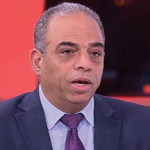In the Arab region, social protection systems have historically suffered from several shortcomings, including high degrees of fragmentation, low coverage rates, and financial unsustainability. However, both Jordan and Tunisia have committed in recent years to expanding and reforming social protection systems. While civil society has the potential to positively influence the development of social protection policies in both countries, social dialogue has historically been suppressed. This paper seeks to examine the current context of social protection policy generation in both countries, providing an comparative examination of the historical roles that social dialogue has played in the formation of social protection policies and analyzing how periods of restricted public freedoms and tightening of civic space has limited civic participation in policy formation. The paper also provides a comparative analysis of the current social dialogue mechanisms and public freedoms in both countries, and in particular shifts which have occurred post-2011. By doing so, this paper highlights the role that civil society has played in the creation of recent social protection reforms, as well as identifies the significant challenges to civic participation in policy development which remain in both nations.
ملخص
في المنطقة العربية، عانت أنظمة الحماية الاجتماعية تاريخيا من العديد من أوجه القصور، بما في ذلك درجات عالية من التبعثر، وانخفاض معدلات التغطية، وعدم الاستدامة المالية. ومع ذلك، التزمت كل من الأردن وتونس في السنوات الأخيرة بتوسيع وإصلاح أنظمة الحماية الاجتماعية. وفي حين أن المجتمع المدني لديه القدرة على التأثير بشكل إيجابي على تطوير سياسات الحماية الاجتماعية في كلا البلدين، إلا أن الحوار الاجتماعي قد تم قمعه على مدار التاريخ. تسعى هذه الورقة إلى فحص السياق الحالي للتمخض عن سياسات الحماية الاجتماعية في كلا البلدين، وتقديم دراسة مقارنة للأدوار التاريخية التي لعبها الحوار الاجتماعي في تشكيل سياسات الحماية الاجتماعية وتحليل كيف أن فترات تقييد الحريات العامة وتضييق الحيز المدني قد حدت من المشاركة المدنية في تشكيل السياسات. كما تقدم الورقة تحليلا مقارنا لآليات الحوار الاجتماعي الحالية والحريات العامة في كلا البلدين، ولا سيما التحولات التي حدثت بعد 2011. من خلال القيام بذلك، تسلط هذه الورقة الضوء على الدور الذي لعبه المجتمع المدني في إنشاء الإصلاحات الأخيرة للحماية الاجتماعية، كما تحدد التحديات الكبيرة التي تواجه المشاركة المدنية في وضع السياسات والتي لا تزال قائمة في كلا البلدين.

Speakers
Courtney Geary
Researcher, Phenix Center

Speakers
Asma Ben Hassen
Founder and President, Tunisia Inclusive Labor Institute...

Speakers
Arbia Saleh
Head, Research Department, Tunisia Inclusive Labor Institute

Speakers
Ahmad Awad
General Director, Phenix Center for Economic and...


